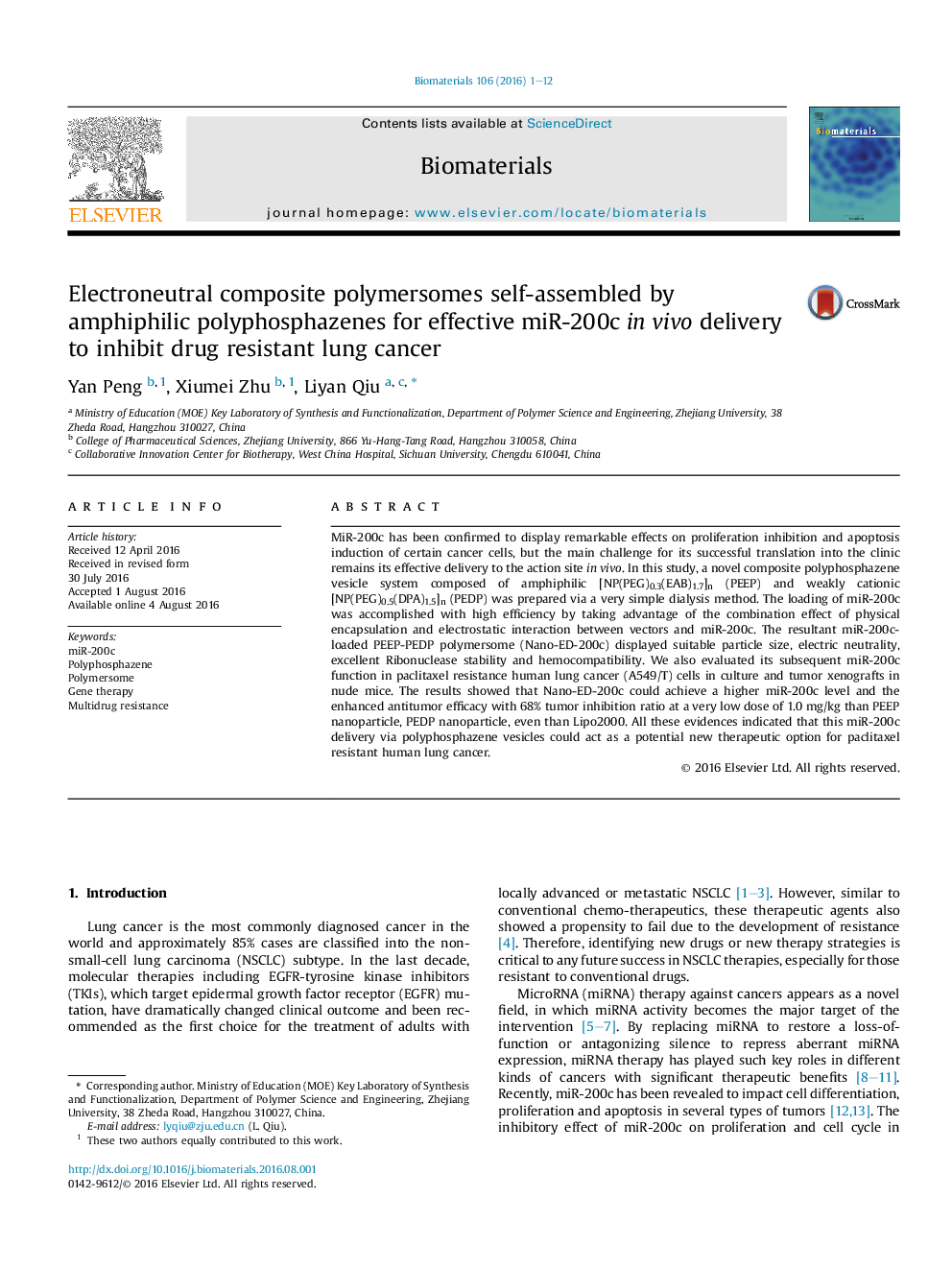| Article ID | Journal | Published Year | Pages | File Type |
|---|---|---|---|---|
| 6451083 | Biomaterials | 2016 | 12 Pages |
MiR-200c has been confirmed to display remarkable effects on proliferation inhibition and apoptosis induction of certain cancer cells, but the main challenge for its successful translation into the clinic remains its effective delivery to the action site in vivo. In this study, a novel composite polyphosphazene vesicle system composed of amphiphilic [NP(PEG)0.3(EAB)1.7]n (PEEP) and weakly cationic [NP(PEG)0.5(DPA)1.5]n (PEDP) was prepared via a very simple dialysis method. The loading of miR-200c was accomplished with high efficiency by taking advantage of the combination effect of physical encapsulation and electrostatic interaction between vectors and miR-200c. The resultant miR-200c-loaded PEEP-PEDP polymersome (Nano-ED-200c) displayed suitable particle size, electric neutrality, excellent Ribonuclease stability and hemocompatibility. We also evaluated its subsequent miR-200c function in paclitaxel resistance human lung cancer (A549/T) cells in culture and tumor xenografts in nude mice. The results showed that Nano-ED-200c could achieve a higher miR-200c level and the enhanced antitumor efficacy with 68% tumor inhibition ratio at a very low dose of 1.0 mg/kg than PEEP nanoparticle, PEDP nanoparticle, even than Lipo2000. All these evidences indicated that this miR-200c delivery via polyphosphazene vesicles could act as a potential new therapeutic option for paclitaxel resistant human lung cancer.
Graphical abstractDownload high-res image (288KB)Download full-size image
